Your basket is currently empty!
Written by
Changing From Conventional Boiler To Combi Boiler Cost

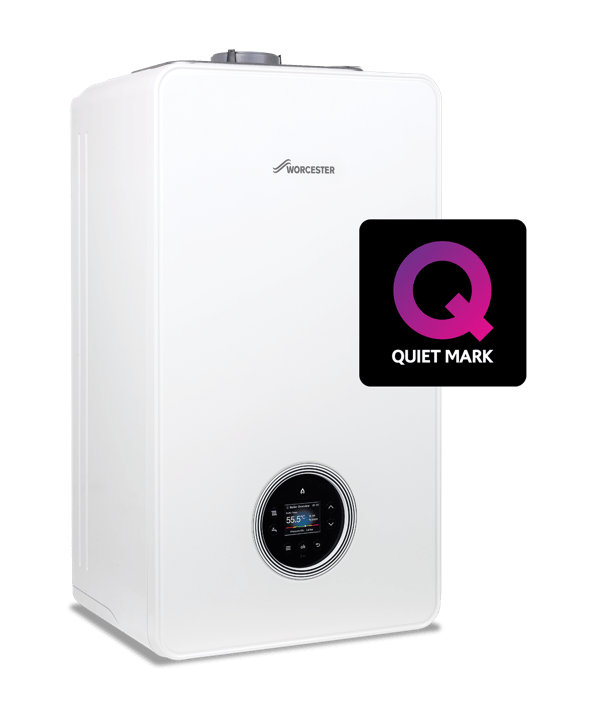
Changing from a regular or conventional boiler to a combi boiler can be tempting. If you’ve recently moved into a new home, your hot water needs might be very different to what the previous owners needed.
It might also be that now your children have moved on to homes of their own, you no longer need the same amount of hot water that used to be needed.
You might also be tempted by the space-saving design of a combi boiler compared to a heat-only boiler that requires a hot water tank
Get your Fixed Price Boiler Quotes Online
New Gas Boilers with £0 Deposit & 0% Interest Finance Availble
Get the best quotes for boiler installation online in under 1 minute now
Converting to a combi boiler – what are the benefits?

But moving over to a new boiler and a combi boiler in particular, can be a big job and that might leave you wondering if all the time and effort will be worth the potential benefits.
Then you’re also going to be wondering what will a new boiler will cost.
In this guide, we’re going to take a look at what is involved in changing to a combi boiler so that we can help you decide if it’s going to be worth the cost and the inevitable disruption.
What is a combi boiler?
Before leaping in and making the decision to change over to a new combi boiler, it’s important to understand exactly what you’re getting.
We also don’t want to go into this with entirely rose-tinted glasses, there are some disadvantages to a combi boiler as well.
How does a combi boiler work?
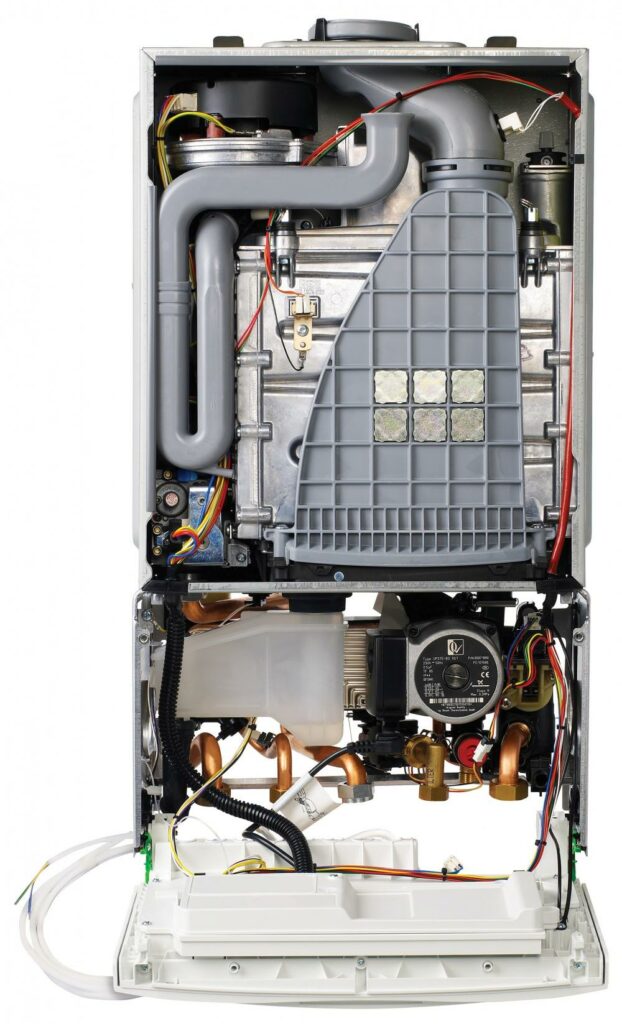
Combi boilers get their name from the fact that they provide a “combination” of instant hot water and central heating. The system has two separate heat exchangers one that links through to the radiators of your central heating system, and one that connects to the hot water supply.
Turn on your taps for instant hot water
When you request hot water, either by turning on the tap or turning up the thermostat, the best combi boiler signals a sensor that tells the boiler that it needs to burn fuel, so that’s your gas, electric, or oil supply.
The combination boiler will then produce hot water by making sure that the heat exchanger gets hot enough to warm the water as its flows over it.
Heat to your taps or radiators
The control valves in a combi boiler work in different directions. So, that means that out will either send hot water to the radiators or through to a hot tap. A combi boiler generally cannot do both at the same time.
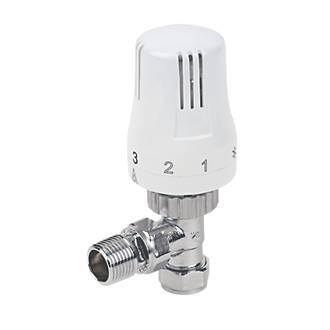
This means that when you turn on the hot water tap when you also have a heating requirement, the combi boiler will need to prioritise one or the other.
Usually, the water takes priority as a few minutes of no heated water running through the heating is unlikely to create a noticeable difference to the warmth of the room.
Get your Fixed Price Boiler Quotes Online
New Gas Boilers with £0 Deposit & 0% Interest Finance Availble
Get the best quotes for boiler installation online in under 1 minute now
Are combination boilers the same as condensing boilers?
You might see combi boilers being promoted as condensing boilers. However, all combi boilers are condensing boiler systems. That’s because, since April 2005, all boilers whether they’re a combi, heat-only boiler, or even a back boiler needs to be condensing. So this is more of a combination boiler type rather than a special feature.
What is a condensing combi boiler?
The term ‘condensing’ comes down to the way in which the boiler functions. Before the introduction of the legislation, boilers were non-condensing and that meant that all the waste gases and heat that were produced were released outside of the home.
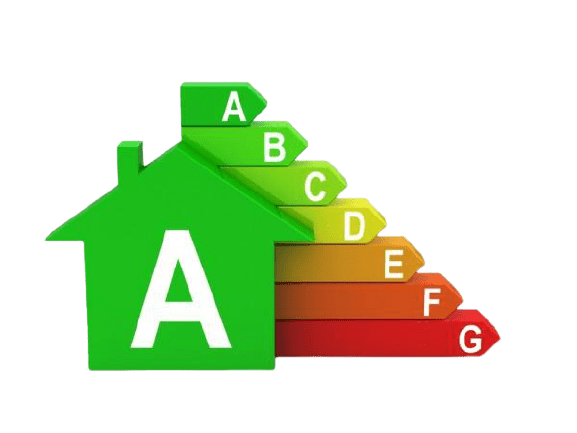
Lower energy bills
This led to a huge amount of heat being wasted and unnecessarily high energy bills. To make household boilers more energy-efficient, condensing boilers were developed. Condensing boilers have two internal heat exchangers and that ensures that less heat is lost.
That then means that the boiler doesn’t have to work as hard to produce the hot water and in turn, uses less energy.
Advantages of a combi boiler
Combi boilers are the most popular type of heating system in the UK and that shouldn’t come as a surprise when you read through the advantages of having one installed.
- Save space in your home – there’s no need to take up space in the loft with a hot water tank or your airing cupboard to be filled with a hot water cylinder.
- Immediate hot water – No more waiting for a tank of hot water to heat up. The combi boiler will produce hot water only when you need it.
- Compact – Many combi boilers are the perfect size for them be installed into a kitchen cupboard. That makes them a great option for saving space.
- Economical to run – Combi boilers are energy efficient with minimum efficiency levels in excess of 92%. This means that your bills will be lower than with most other boiler types.
- Quick and easy installations – with only the boiler itself to install , a combi boiler is quick and easy to have up and running.
- Safe & clean water – With the water coming directly from the mains, it’s not lingering in a hot water tank prior to being used.
Disadvantages of a combi boiler
There aren’t too many disadvantages associated with a combi boiler but there are a few that you need to be aware of.
- Provides heated water to one outlet at a time – If two people try to use hot water at the same time, it’s likely that one will end up with very low pressure or no hot water at all.
- Slower water rate – Because the combination boiler is taking the water from the mains and then heating it, you might find that the delivery of hot water is slower than with a system boiler.
- No backup system – A combi boiler doesn’t have a backup immersion heater, so in the event of a breakdown, you’ll have no way to heat hot water.
Get your Fixed Price Boiler Quotes Online
New Gas Boilers with £0 Deposit & 0% Interest Finance Availble
Get the best quotes for boiler installation online in under 1 minute now
How do combi boilers differ from a system boilers?
A system boiler takes its water supply from the mains just the same as a combi boiler. However, it heats the water in advance and then stores it in a hot water cylinder.
A system boiler is ideal where the home has little to no loft space but where there is a big demand for hot water. So that might be a larger home with several bathrooms or for commercial properties.
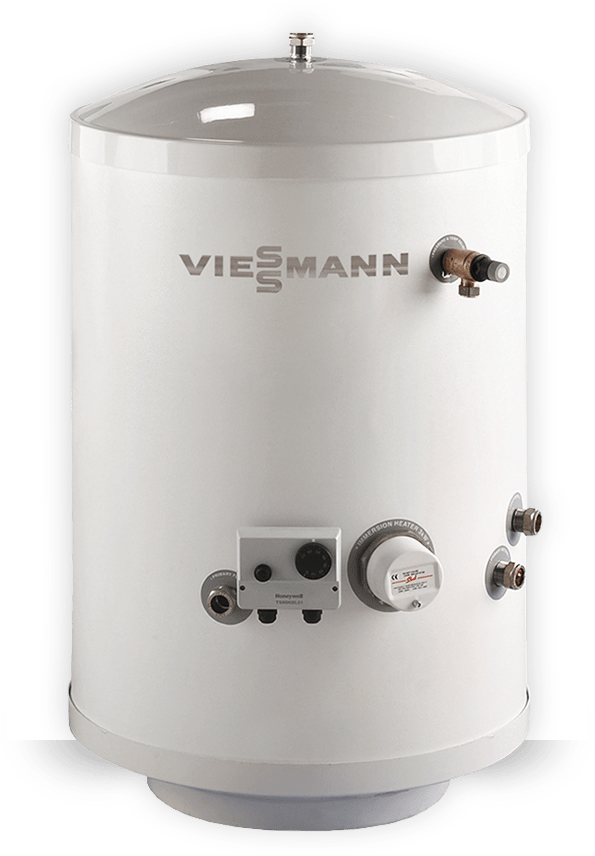
Advantages of a system boiler
- Suitable for larger homes – System boilers can meet the demands of homes with more than one bathroom
- A pre-heated supply of heated water – multiple hot water taps can be served at the same time when you can store hot water in advance
- Space saving – The system boiler needs less space than a regular boiler as it doesn’t need a cold water tank in the loft
- Environmentally friendly options – System boilers are compatible with solar panels providing a great opportunity to save money on energy bills.
Disadvantages of a system boiler
- Less efficient – The system boiler is less efficient than a combination boiler and that’s because there will be some heat loss while the pre-heated water is being stored.
- More space is needed than for combi boilers – The system boiler needs a hot water tank that’s usually fitted in the airing cupboard.
- Hot water can run out – Then there is a waiting period until a new tank of water heats up.
How do combi boilers differ from regular or conventional boilers?
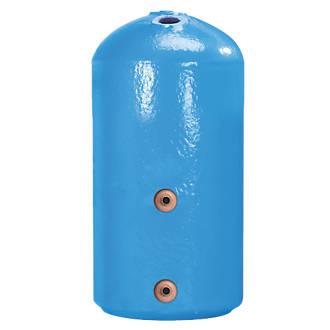
The regular boiler is also known as a traditional, conventional, heat-only, or standard boiler and you’re most likely to find this type of heating in older properties.
Conventional boilers differ from combination boilers in that they have a cold water tank, usually in the loft. This then supplies the water to the hot water cylinder as well as a tank that supplies water to the central heating system.
Conventional boilers for older systems
When a home has an older radiator system and pipes, it may not be able to cope with the high water pressure associated with system or combi boilers.
That can then mean that homeowners often choose to replace an existing conventional boiler with one of the same type to avoid a costly upgrade to the entire central heating system.
Just like system boilers, a regular boiler is also compatible with a solar panel water heating system.
Advantages of a conventional boiler
- Can serve multiple outlets – The regular boiler enables water to be sent to several hot taps at the same time
- Perfect for larger properties – the conventional boiler can cope with the demands from multiple bathrooms
- Low pressure adaptable – A suitable option in areas where the water pressure is low
- Environmentally friendly options – Compatible with solar heating systems
Disadvantages of a conventional boiler
- Low pressure – Operates at a lower pressure than either the combi or system boiler
- Needs lots of loft space – A conventional boiler needs room for both cold and hot water tanks
- Lower levels of efficiency – inevitable heat loss from stored hot water
- Hot water can run out – Then there is a waiting period until a new tank of water heats up.
Get your Fixed Price Boiler Quotes Online
New Gas Boilers with £0 Deposit & 0% Interest Finance Availble
Get the best quotes for boiler installation online in under 1 minute now
Which combi boiler to change to?
The advantages of combi boilers over other types of boilers are pretty impressive. So you might have now decided that a new boiler is needed and you’re ready for your combi conversion.
Now if you’ve already done some research, you’ll have found that there are hundreds of combi boilers to choose from.
So we’ve detailed some of the key information you need along with the features that might be important for you to have in your new boiler.
Establishing the right boiler size for your home
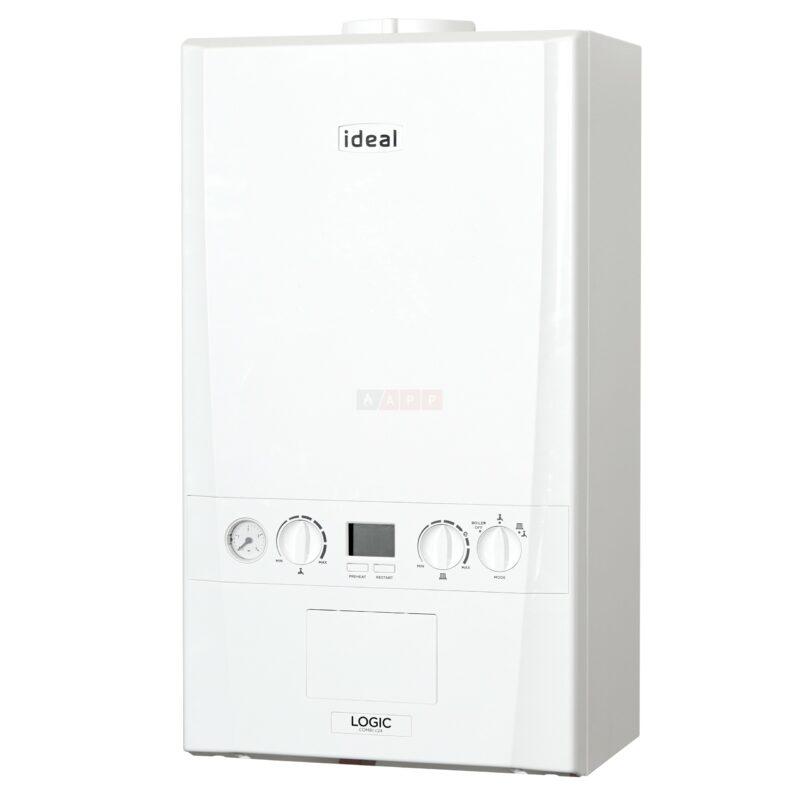
It would be easy to think that when people talk about the size of a boiler, they’re talking about its dimensions. However, the size of a boiler actually refers to its output rating.
Getting the right output combi
Output is the amount of power, measured in kW, that your new boiler can provide to the heating. The higher the output then the more suitable the boiler will be for larger homes with more radiators.
If your new boiler has an output that’s too low for your needs, then it won’t be able to heat your home effectively. If though, you get a new boiler where the output is too high, then there’s the risk that you’re wasting energy and end up with energy bills higher than they need to be. So to save money and energy the correct size of boiler replacement is essential.
What to consider when choosing combi boiler output
Some of the key things to consider in ensuring that your new boiler has the correct output are:
- Type of boiler, in this case, combination boilers
- Total number of radiators in the home
- The total number of bathrooms including additional showers
- Total number of people that live in the home
To provide some examples, here are some common scenarios along with details of the output that combination boilers are going to need to meet the homes requirements.
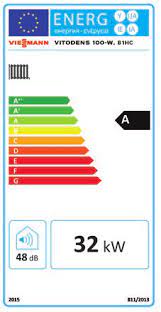
Small single flat home
If you live by yourself or have a small family living in a flat or a bungalow and you have up to two bedrooms, one bathroom, and around ten radiators then a new boiler with an output of between 24-29kW is going to meet your needs.
Average sized family
Then looking at an average-sized family so that might be a terrace property, a bungalow or semi-detached house with up to four bedrooms, one to two bathrooms, and no more than fifteen radiators. For this size of home then you’ll be looking at a new boiler that has an output of between 30-35kW.
Larger family home
Next up is a a large family along with a high demand on the hot water supply who live in a large semi-detached or detached house.
They have over four bedrooms, and two bathrooms with up to twenty radiators. Now you need to be looking at a boiler with an output of around 35-43kW.
With these types of requirements it might be that a combi boiler isn’t going to be able to meet your hot water needs. Remember that the combi boiler heats on demand and if you need a boiler replacement that can supply hot water to several outlets at the same time then you’re going to need a hot water tank. So, in this situation a system boiler could be a better option.
Get your Fixed Price Boiler Quotes Online
New Gas Boilers with £0 Deposit & 0% Interest Finance Availble
Get the best quotes for boiler installation online in under 1 minute now
How many radiators do you have?
Another way of calculating the size needed for your new boiler is to count the number of radiators that you have in your home.
That’s because, the more radiators you have, the more power that your new boiler needs to have. Combi boilers are generally available in one of four sizes:
- 24-25kw
- 28-30kw
- 33-35kw
- 40kw.
Most flats and small houses with up to ten radiators are best suited to a 24-25kw boiler.
A medium-sized home with three to four bedrooms and up to 15 radiators should be looking at combi boilers with a power output of around 28-30kW.
Large home with up to 20 radiators will need a combi boiler with a power output of 33-35kw or 40kW
Combi boiler features are important
We’ve already mentioned that the choice for your new boiler is immense. So to help you narrow that down, we’re identified some of the key features that you might want to look out for.
Boiler brand

While it might not be a feature, the boiler brand will have an influence on the price you pay, the length of warranty, and, potentially, the quality of the new boiler.
Stainless steel heat exchanger
Some boiler manufacturers now include a stainless steel heat exchanger within their combi boiler. This enables the boiler to achieve a high level of energy efficiency while also avoiding the problems associated with corrosion.
This could then mean that the lifespan is going to be extended and you’re not going to have to think about a boiler replacement for much longer.
Viessmann for example have their own patented Inox-Radial stainless steel heats exchanger even in their entry-level combi boilers. This has then led them to provide a ten year guarantee against leaks that happen because of corrosion in the heat exchanger. That’s a strong level of confidence in their parts!
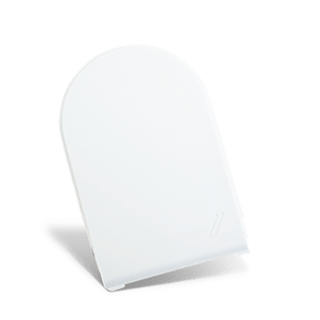
We’ve complied a guide on Viessmann boiler prices to help you choose the right boiler without having to do all the research.
Weather compensation
Weather compensation ensures that your boiler burns exactly the right amount of fuel to compensate for the heat being lost from your home. This then results in a consistent temperature in your home.
Without weather compensation your boiler operates by:
1. Outside temperature goes down
2. Heat is lost via the homes windows and doors
3. As the room gets cooler, the thermostat then communicates with the boiler that heat is needed.
4. The room goes up to the required temperature
When weather compensation is used, a small temperature sensor is fitted to a north-facing wall on the outside the home which is then connected to the boiler controls.
With information about the outside temperature being sent through to the boiler it can begin to compensate for it getting colder by changing the radiator temperature. And all this without the homeowner needing to do a thing!
This then results in higher levels of energy efficiency and lower fuel bills not to mention a much more comfortable home that doesn’t switch between too cold and too hot.
Quick tap functionality
One of the downsides of combi boiler installations is that when you turn on the hot tap, it takes a few seconds before the hot water begins to flow. This can then mean wasted water.
Worcester Bosch have combated this with their Quick Tap functionality. All you need to do is open the tap and then immediately close it again. When you go back to it thirty seconds later, you’ll have hot water the moment that you turn the tap on.
We have a complete guide on Worcester Bosch boiler prices to help you in your search for a new boiler.
Wireless connectivity
If you’re never far from your smartphone then you need to look for a boiler replacement that has wireless connectivity. With the ability to monitor and control your combi boiler from an app on your phone or tablet, there are real opportunities to save money and enhance efficiency.
Some boiler manufacturers have their own in house apps but there is also the option of connecting with smart tools such as the Nest and Tado.
Some of the key features that come from having a wireless connectivity to your boiler combined with a smart app are:
Multi-room thermostatic controls
With a smart control system and thermostatic radiator valves, you’ll be able to set different temperatures for different rooms in the house. Do you prefer your living room to be cooler than the bathroom? That’s no problem when your boiler is set up with a smart thermostat.
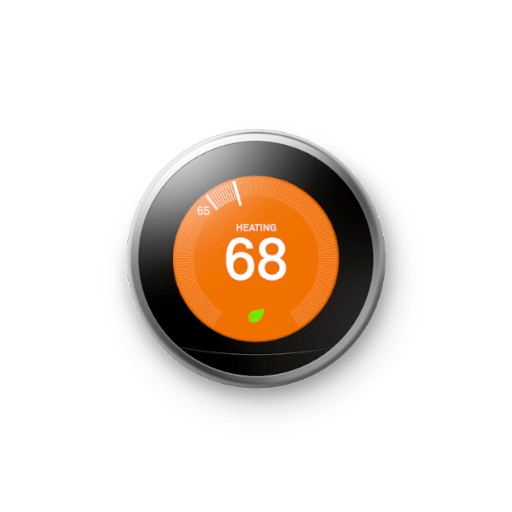
Smart learning thermostat
Some smart thermostats have the ability to learn all about your preferences. Over time they develop an understanding of what time you like the heating on and at what heating level.
That then allows the smart thermostat to communicate with the boiler without you needing to do a thing.
Motions sensors and GPS tracking
GPS tracking
Some smart thermostats, have what’s called geolocation tracking. This means that it knows where you are and whether the boiler should be told to turn the heating off or turn it on because you’re on your way home. This is a great option for when you don’t have a fixed routine and when a traditional thermostat would end up turning on the heat when you might not be at home.
Motion sensors
Motion sensors use infrared technology to detect movement in different rooms in the house. When smart thermostatic valves are also fitted, then the smart app can tell the boiler to turn off the heating in that particular room. If you’re wondering whether you should turn your boiler off at night, read our guide for more insights.
Open window alert
Ever had the heating on for a while and wondered why upstairs is still feeling chilly? That’s usually when you discover that someone forgot to close the window in the bedroom. Well smart technology can now alert you to an open window when you have the heating on, meaning lower bills and warmer homes.
Get your Fixed Price Boiler Quotes Online
New Gas Boilers with £0 Deposit & 0% Interest Finance Availble
Get the best quotes for boiler installation online in under 1 minute now
How much will it cost to change to a combi boiler from hot water tank?
This really is a ‘how long is piece of string’ type question. That’s because new boiler installation costs can vary between different homes with a straight combi swap, let alone when you’re changing from a conventional boiler with a hot water tank to a combi boiler.
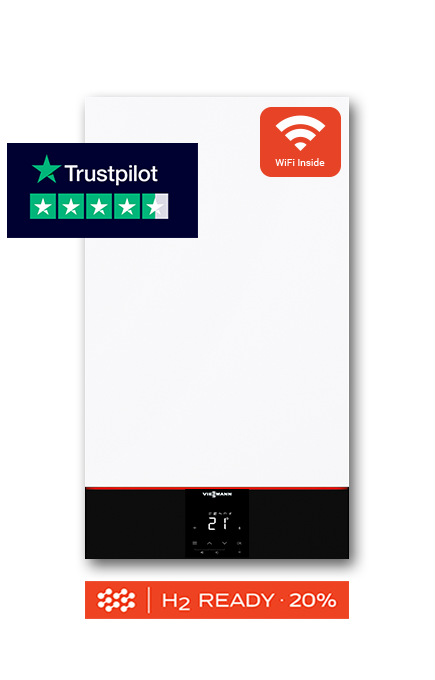
Different combi installations are different prices
We’ve provided average costs for the most common combi boiler conversion scenarios, but this going to vary hugely depending on your old boiler type, and then the particular circumstances and set-up for your home.
To get an accurate figure for new boiler installation costs for your home we recommend getting a no-obligation and fixed price new boiler quote.
Different boiler price ranges
The combination boiler type will vary on the make, and whether you go for a budget or a premium model. The new boiler cost could start at under a thousand pounds but do be aware that new boilers can go up to several thousand for a premium model depending on the power output needed.
Boiler installation cost scenarios
Existing combi boiler to a new combi boiler (like for like with no conversion)
New combi – A straight swap of an existing combi for a new combi boiler
Installation location – No change, just a combi swap
Average boiler installation costs – £1500 to £2000 inc. VAT
Boiler installation time – 1 day
New location average cost – £2100 to £2600 inc. VAT
Time taken to install – 2 days
Regular/conventional boiler to a combi boiler (conversion needed)
Regular to combi boiler – Remove the hot water storage cylinder along with the water tank in the attic and a new combi boiler fitted.
Average boiler installation costs – £2200 to £2500 incl VAT
Time taken to install – 2 days
Costs for this option will be reduced if you decide to disconnect but leave the water tank in the attic
System boiler to combi boiler (conversion needed)
System boiler to combi boiler – Remove the hot water storage cylinder and replace the boiler with a new combi boiler
Average boiler installation costs– £2000 – £2500 incl VAT
Time taken to install – 2 days
Now’s the time to get a more accurate price for your home and heating plans. By entering your requirements into our quotation system, you’ll receive an immediate new boiler quote for a range of different combi boiler models and makes.
Back boiler to combi boiler (conversion needed)
Back boiler to combi – Disconnect the back boiler and either live in situ or remove and dispose. Remove hot water tank/cylinder and if required the attic tank. Then install a combi boiler.
Average cost – £2,500 – £3,100 incl VAT
Time taken to install – 2 to 3 days
Who can change a combi boiler system?

You might be wondering if you could just nip down to the DIY store, buy a new combi boiler and replace your old boiler over the weekend.
But, having a go at boiler installations is a definite no and it has the power of the law to stop you meddling with anything that has a mains gas connection.
That means that you could be issued with a hefty fine or even a prison sentence. and of course, the manufacturer warranty will be invalidated.
When you consider the potential consequences of getting a new boiler installation wrong, then it’s no surprise really that those safeguards need to be in place.
Gas safe registered engineers
Only those engineers who have completed the appropriate training and have been admitted onto the Gas Safe register are allowed to install a new gas boiler or maintain an existing one.
Now that doesn’t mean to say that you have to get a British Gas boiler installation in order to meet the legal requirements. Many independent gas engineers are Gas Safe registered and can help with your combi boiler installation.
We recommend getting everything arranged for your new boiler, with one point of contact. Getting the quote through to arranging the installation is much easier when all you have to do is enter a few details of your heating requirements.
The installation engineer will then check that your home’s water pressure and set-up is suitable for the boiler replacement you’ve chosen, especially if you’re swopping over from a heat-only boiler or back boiler and that’s all done as part of the fixed price service.
There’s even the option to arrange your boiler finance.
Get your Fixed Price Boiler Quotes Online
New Gas Boilers with £0 Deposit & 0% Interest Finance Availble
Get the best quotes for boiler installation online in under 1 minute now
When should I install a combi boiler instead of another type?
Many people take the opportunity to install a new boiler when they’re also undertaking other home renovations. That way it gets all the dust and upheaval over and done within one go.
But there might also be times when the need to change to a combi boiler comes from a broken down heat-only boiler, problems with a hot water tank, or a back boiler just costing too much to repair.
The older the boiler is, the greater the chance of problems especially if the initial installation wasn’t carried out to a high standard.
In these situations, you might decide to take the plunge and get your heating sorted out once and for all.
Unless you have no heating or heated water, you might want to consider waiting till the warmer months of the year. Trying to find a Gas Safe engineer to undertake the installation can be a nightmare during the winter. That’s because they’re helping out all those homeowners who are having problems with their current boiler!
How hard is it to change to a combi boiler system?
It’s important to know that changing your old boiler to a combi boiler can be both difficult and time-consuming. During the boiler installation process, new gas connections will need to be made, which as we’ve already mentioned, means that only Gas Safe Registered engineers can undertake the work.
Some homeowners decide to make the changing the boiler installation process easier by leaving cold water tanks in place.
This removes the need for them to be dismantled and removed from the loft area. However, if you have plans for a loft conversion, then the tanks will need to be removed.
Combi boiler conversion installation process
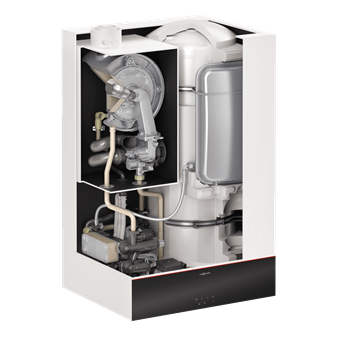
So you might now be wondering what’s involved in a new combi boiler installation process. Again, all boiler installation processes can vary between different properties but this will give you an idea of the steps involved.
Changing to a Combi Boiler – Installation Steps
Once the Gas Safe installers are at your property, they will perform the following steps:
- Drain the current heating and hot water system.
- Now the existing boiler can be safely removed.
- The existing thermostat and controls may not be compatible with your new boiler so they may also need to be decommissioned and removed.
- If you currently have a system boiler and you’re moving to a combi boiler then the hot water tank or cylinder can be removed. If you’re switching from a regular to a combi boiler then you may also decide to remove the cold water tank from the attic.
- Now the system can be converted to that required by a combi boiler. That includes ensuring that the gas run is the required 22mm.
- With everything prepared now the engineer can install your brand new combi boiler
- A chemical or power flush is now carried out to make sure that the system and radiators are free of any sludge that might affect the performance of the new combi boiler.
- Many manufacturers recommend the firing of a magnetic filter . Again this keeps your central heating system free of sludge and working at top efficiency levels. some brands of boiler offer an extended warranty when a magnetic filter is fitted so that’s worth checking out.
- Now the thermostat can be fitted and configured. There is now a huge range of choice between the traditional thermostat and the new smart wireless systems.
- Now with the boiler installed, the gas engineer can commission the system. Your new combi boiler will be tested to ensure that the installation meets all requirements and the benchmark paperwork will be completed.
- Now the new combi boiler can be registered with the manufacturer so that the warranty is validated.
- Finally, the engineer will hand over your brand new combi boiler!
Is now the time for your new boiler replacement?

There really are a huge number of reasons to swop your current back boiler or heat only boiler over to a combi boiler.
While it can be a big job and it will result in a few days of disruption, the enhanced efficiency and the potential for lower bills are going to make it all worthwhile in the end.
The next step is to find the perfect combi boiler. As you’ve already seen there are a whole range of considerations to make in finding the boiler that’s going to be a great fit for your home and ensure that you have heat where and when you need it.
That’s why we’ve made life easier for you and compiled a huge database of all the current combi boilers from a wide range of manufacturers.
Simply enter a few details about your heating requirements and the size of your home. Then you’ll be presented with a new boiler quote made up of a personalised list of recommended boilers and all offered at a fixed price including installation!
Get your Fixed Price Boiler Quotes Online
New Gas Boilers with £0 Deposit & 0% Interest Finance Availble
Get the best quotes for boiler installation online in under 1 minute now
Written by
Get your Fixed Price Boiler Quotes Online
New Gas Boilers with £0 Deposit & 0% Interest Finance Availble
Get the best quotes for boiler installation online in under 1 minute now
What is in this article?
- Converting to a combi boiler – what are the benefits?
- What is a combi boiler?
- Are combination boilers the same as condensing boilers?
- Advantages of a combi boiler
- Disadvantages of a combi boiler
- How do combi boilers differ from a system boilers?
- How do combi boilers differ from regular or conventional boilers?
- Conventional boilers for older systems
- Which combi boiler to change to?
- Combi boiler features are important
- How much will it cost to change to a combi boiler from hot water tank?
- Who can change a combi boiler system?
- When should I install a combi boiler instead of another type?
- How hard is it to change to a combi boiler system?
- Combi boiler conversion installation process
- Changing to a Combi Boiler – Installation Steps
- Is now the time for your new boiler replacement?





